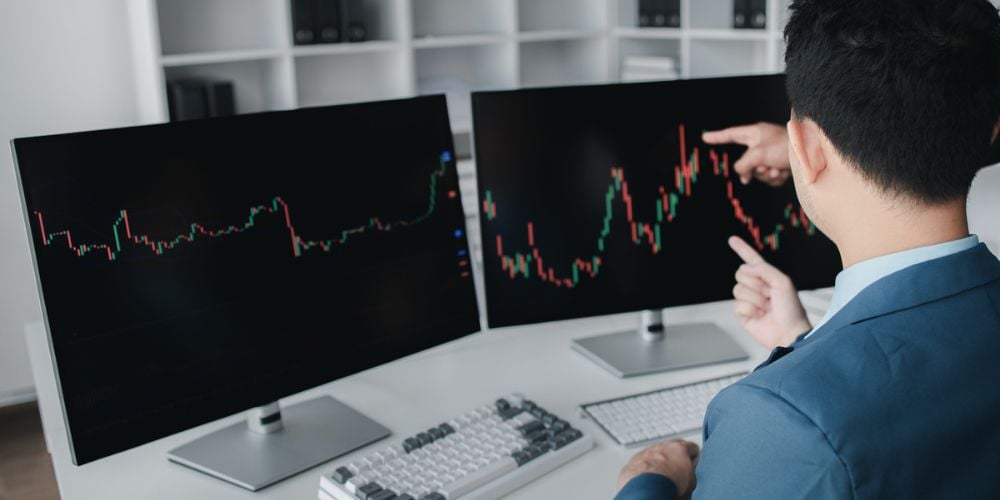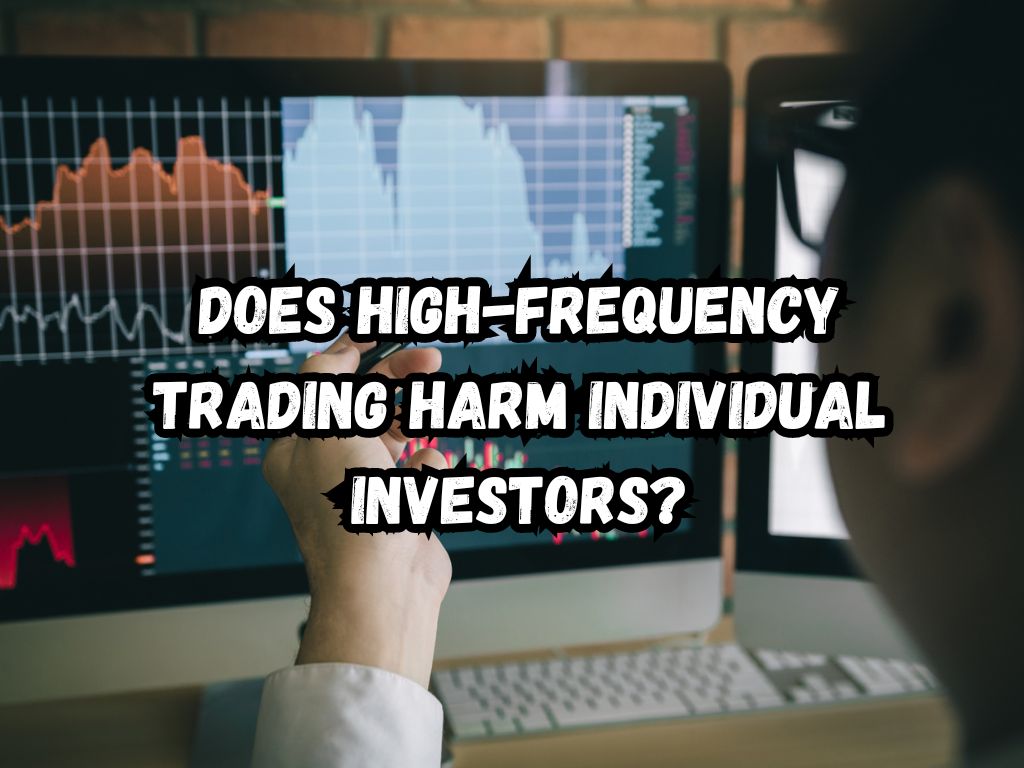The debate over High-Frequency Trading (HFT) has persisted as the stock market has become increasingly complex.
HFT refers to the use of powerful computer algorithms to execute trades at speeds incomprehensible to the human trader. So, does high frequency trading harm individual investors?
The central question revolves around whether this technological leap benefits everyone involved or causes undue harm to individual investors who cannot compete at these speeds.
This article delves into the impact of HFT on the market and the everyday investor.
Does High Frequency Trading Harm Individual Investors?
High-Frequency Trading is a method of trading that leverages advanced algorithms to transact a large number of orders at lightning-fast speeds.
HFT emerged in the late 20th century with the proliferation of electronic trading platforms, growing vastly with advances in technology.
Key participants include large financial institutions and hedge funds that have the resources to invest in the sophisticated technology required for HFT.

How Does HFT Work?
HFT firms use strategies like market making, where they profit from the bid-ask spread by fulfilling orders in high volumes.
Another strategy is arbitrage, where a firm simultaneously buys and sells the same asset in different markets to cash in on price disparities.
They also employ liquidity detection strategies to identify large orders from other market participants and trade ahead of these orders.
The foundation of HFS’s efficiency is the infrastructure — typically using co-location services, where their trading systems are located close to, or even within, the exchanges to minimize delay in order execution.
Dark pools, private and typically less transparent venues for trading securities, are also frequented by HFT firms where they can execute large block transactions without impacting the market.
The Positive Impacts of HFT on the Market
Despite criticism, HFT has several beneficial effects on the financial markets. Firms provide substantial liquidity to the market, making it easier for others to buy and sell securities. This, in turn, aids in efficient price discovery, ensuring that security prices reflect available market information faster.
Moreover, the competition brought in by HFT has been associated with narrower bid-ask spreads, reducing transaction costs for all market participants.
Potential Negative Impacts of HFT on Individual Investors
Critics argue that HFT can harm individual investors. They propose that the speed advantage of HFT firms can lead to market volatility as massive volumes of trades are executed within seconds.
There is a concern about fairness since these firms can outmaneuver individual traders with their superior technology.
Moreover, situations like the 2010 Flash Crash, where the Dow Jones Industrial Average plunged nearly 1,000 points before recovering within minutes, have raised questions about the instability HFT may bring to financial markets.
HFT Regulation and Its Effectiveness
In response to worries surrounding HFT, regulators have taken steps to enforce measures that could reduce its potential adverse effects.
The Dodd-Frank Wall Street Reform and Consumer Protection Act in the United States, for example, was introduced to reduce various risks in the financial markets.
Restraints on proprietary trading, improving the transparency of derivatives, and bolstering the oversight on financial markets are just a few of these measures.
Nevertheless, regulating HFT poses challenges, particularly in detecting and proving manipulative behaviors due even to the speed at which these transactions occur.
Pro Tips for Individual Investors
For those investing in today’s high-speed markets, it’s vital to evolve and adapt one’s approach.
Understanding the influence of HFT on market movements can help in making more informed decisions.
Individual investors should also be vigilant about risk management techniques that can protect against market volatility.
Knowledge is power, so it’s beneficial to keep abreast of changes in trading technology and regulations which could affect investment strategies.

Frequently Asked Questions
What is High-Frequency Trading (HFT)?
HFT is a trading method utilizing powerful computers and algorithms to execute a large number of orders at ultra-fast speeds.
Can individual investors compete with High-Frequency Traders?
Competing directly on speed is challenging, but individuals can adapt strategies that focus on longer timeframes.
How does HFT affect the stock market’s liquidity?
HFT adds significant liquidity, making it easier to buy and sell securities which can benefit individual investors.
Does HFT cause the stock market to be more volatile?
There’s debate on this, but some incidents suggest that HFT can sometimes exacerbate market volatility.
What measures can regulators take to protect individual investors from the potential negatives of HFT?
Regulators can enforce transparency, fair trading practices, and stricter oversight of algorithmic trading activities to mitigate any potential harm from HFT.
Conclusion
The influence of HFT on individual investors remains a hotly debated issue. While it’s clear that there are both benefits and downsides to the presence of HFT in the markets, how they specifically affect individual investors can vary widely depending on numerous factors, including the type of investment and the investor’s strategy.
Notwithstanding, staying well-informed and strategic about one’s investments is crucial in a financial world that is ever more dominated by advanced technology.
Finding a consensus on the impact of High-Frequency Trading on individual investors proves to be elusive. HFT undoubtedly shapes the dynamics of the modern stock market.
Its role in providing liquidity and enabling efficient price discovery is significant, but its contribution to market volatility and fairness is still open to scrutiny.
As we grapple with the complexities HFT introduces to the trading realm, our best defense as individual investors is a robust understanding of these dynamics and the regulatory landscape.


 Tags:
Tags:










